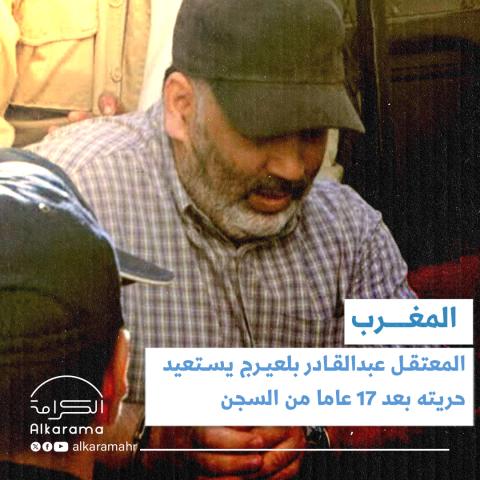
The Moroccan authorities have proceeded with the release of Belgian-Moroccan detainee Abdelkader Belliraj, who had been sentenced to life imprisonment, pursuant to a royal pardon granted on the occasion of Eid al-Fitr, after seventeen years of detention.
This release comes while the United Nations Working Group on Arbitrary Detention (WGAD), in its Opinion No. 27/2016 adopted on 23 August 2016, had concluded that his deprivation of liberty was arbitrary and had urged the Moroccan authorities to proceed with his immediate release.
Case Background
Abdelkader Belliraj’s trial was marked by serious violations of his fundamental rights, drawing strong criticism from human rights organisations.
Arrested on 18 January 2008 in Marrakech without a judicial warrant and without being informed of any charges against him, he was subjected to secret detention for twenty-eight days, during which he endured acts of torture and was coerced into signing statements without being able to review them and without legal assistance.
The statements drafted at the end of this detention retrospectively altered the date, location, and circumstances of his arrest, falsely placing it on 16 February 2008 at Casablanca airport. His family was not informed of his whereabouts until 20 February 2008, when the then-Minister of the Interior, Chakib Benmoussa, announced at a press conference the dismantling of an alleged "terrorist cell linked to Al-Qaeda", which was said to have been created in 1992 under the leadership of Belliraj. However, the majority of individuals arrested in connection with this case had no connection to Belliraj or to each other. Among those detained were members of the Socialist Party, five journalists, and individuals from Islamist movements.
Accused of allegedly leading this group, Abdelkader Belliraj was sentenced to life imprisonment on 29 July 2009, a sentence later upheld on appeal and by the Court of Cassation. However, at no point did Moroccan courts take into account the allegations of enforced disappearance, secret detention, torture, and falsification of statements, nor did they open an investigation into these claims, in contradiction with Morocco’s international human rights obligations.
It is noteworthy that the statements obtained during Belliraj’s secret detention implicated him in the assassination of Dr Wabrane in Belgium on 3 October 1989. This accusation led the victim’s widow to request the reopening of the case by Belgian authorities. However, after thoroughly reviewing the circumstances under which Belliraj’s confessions were obtained, the Belgian public prosecutor concluded that there was no basis for prosecution, emphasising that his statements had been extracted under torture and thus could not be considered valid evidence. On 17 April 2015, the Belgian Court of First Instance also recognised the invalidity of these statements.
Recognition of the Arbitrary Nature of the Detention
The United Nations Working Group on Arbitrary Detention characterised Belliraj’s arrest and detention as arbitrary. In its Opinion No. 27/2016, it highlighted multiple violations of his right to a fair trial, from his arrest to his final conviction. The Group reiterated that the prohibition of torture is absolute under international law and that any statements obtained through such means are inadmissible as evidence.
UN experts further stressed that, at the very least, Moroccan courts should have conducted an independent and impartial investigation to establish the facts. Additionally, they referred the case to the Special Rapporteur on the independence of judges and lawyers, as well as the Special Rapporteur on torture, to bring attention to this matter.
Despite the Working Group’s recommendations for an immediate release and compensation for the harm suffered, Abdelkader Belliraj remained incarcerated until his recent release, granted as part of a royal pardon.
